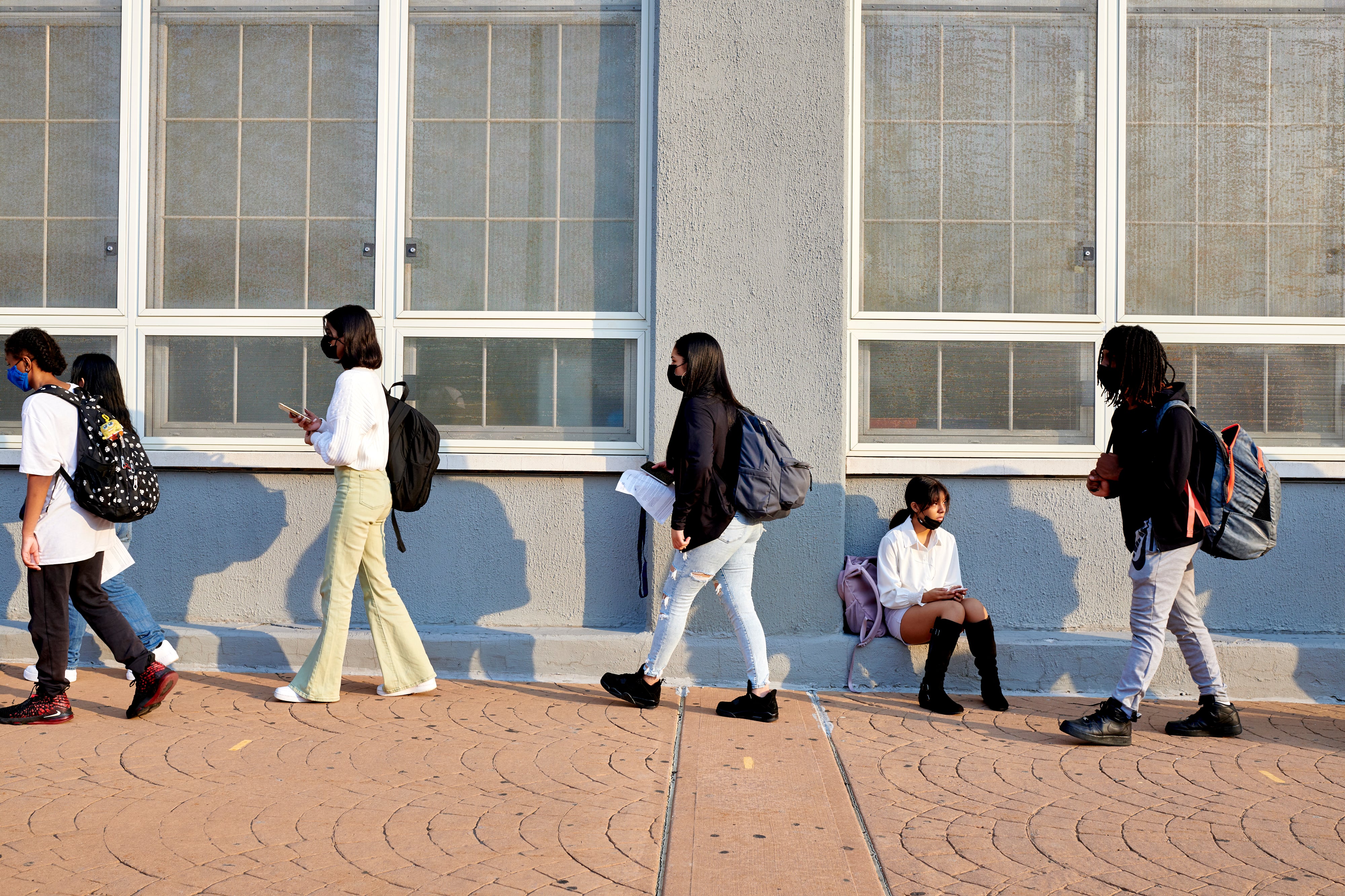Starting in the 1800s, generations of Native American children across the country were taken from their homes and brought to federally funded boarding schools that banned their native languages, clothing and traditions.
Now Michigan is ensuring public school students learn the history of abuse at those boarding schools that once tried to erase Indigenous culture. They’ll also learn about the 12 federally recognized tribes in Michigan, tribal governance, economies of early civilizations, the Trail of Tears, causes of the Mexican-American War, and more.
Lawmakers infused the 2022-23 school aid budget with $750,000 to update state social studies standards and add modules about Indigenous tribal history for students in grades 8 through 12.
Michigan is among a number of states, including Idaho, North Dakota, and Wisconsin, that are beginning to bolster their curricula to include more lessons about Indigenous history that tribes say have been lacking.
The movement has grown stronger this year after the U.S. Interior Department reported that thousands of children died in the custody of Indian boarding schools that abused them, exploited their labor, and took their families’ land. That report came after the discovery of the remains of 215 children at the site of the former Kamloops Indian Residential School in British Columbia, Canada.
In Michigan, the new curriculum will shift away from historical attempts to erase Indigenous histories and to perpetuate the invisibility of tribal communities in the public education system, said Jordan Shananaquet, eniigaangidoong (chairperson) of the Confederation of Michigan Tribal Education Departments.
CMTED, which includes leaders of the education departments of the state’s 12 federally recognized tribes, is partnering with the Michigan Department of Education to develop the curriculum and prepare educators to teach it.
The standards will ensure middle and high school students learn about the history, culture, and contributions of tribal nations, state Superintendent Michael Rice said.
The Michigan Department of Education has been prioritizing Indigenous education by, for example, launching an Indigenous Education Initiative, highlighting the work of Indigenous educators, and offering professional development on teaching about First Peoples.
That’s refreshing to April Lindala, a professor in Northern Michigan University’s Center for Native American Studies, where she teaches a course on the history of Indian boarding schools.
Students are graduating from Michigan high schools knowing surprisingly little about Indigenous history, particularly the boarding schools, five of which were in Michigan, she said.
“There are some who know nothing at all, or what they do know is so limited that they don’t understand the consequence of what was happening at the time or the intergenerational consequences of how that past affects communities today,” Lindala said.
Schools across the country have been moving toward more complete versions of history. In some places, the shift has given rise to pushback from parents and others who argue that “woke” educators are indoctrinating students with anti-American attitudes by, for instance, teaching that racism was baked into the nation’s founding documents, or that Christopher Columbus should be shunned as a colonizer rather than celebrated as a discoverer.
“We’re just talking about what actually happened to people,” said Shananaquet, of the tribal education group. “We have to sit with the not-so-great aspects of our history and understand that, because it influences the present, too. We’re trying to teach the multitude of histories and stop painting a historical narrative that is only happy and good. That’s not real.”
Understanding history also helps people understand the present, she said.
Native Americans “are not trapped in amber,” Shananaquet said. “We are living, breathing, evolving people. This is who we were, this is what happened to us, and this is who we are now. … We are a thriving people who have our own culture, our own languages, our own histories that were tried to be destroyed, and we’re still here.”
Tracie Mauriello covers state education policy for Chalkbeat Detroit and Bridge Michigan. Reach her at tmauriello@chalkbeat.org.






